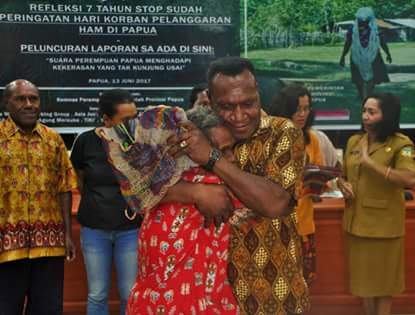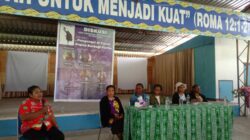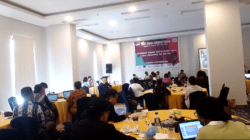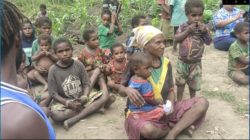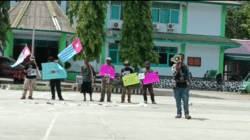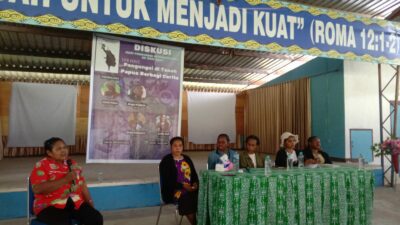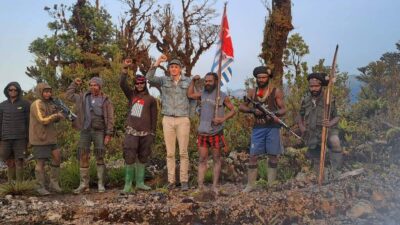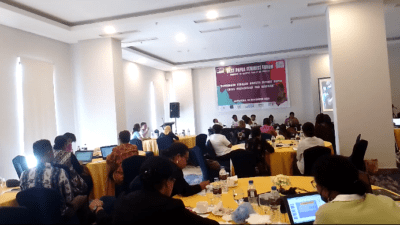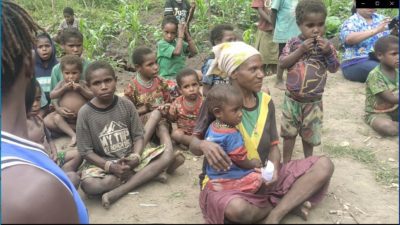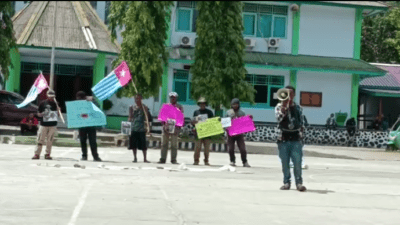
Jayapura, Jubi – After it was launched seven years ago, the recommendations of Violence against Papuan Women Report “Stop Sudah” remain on paper.
One of the recommendations that were formulated was Special District Regulation (Perdasus) No.1 Year 2011 on the Reparation of the Rights of Women Victims of Violence and Human Rights Violations (Perdasus Pemulihan).
Departing from the findings and recollections of the “Stop Sudah” report, the Papuan and Papuan Provincial Parliament issued the Perdasus. However, six years have passed; the Perdasus has not been numbered and recorded on the State sheet.
“The Reparation Perdasus is a necessity for women victims and their families in the context of self-recovery and the fulfillment of their rights as dignified individuals. But until now, we don’t know where the problem is so the Perdasus remain idled, “said Reverend Magda Kafiar, one of victim’s advocate in Jayapura area.
The government’s lack of clarity in implementing Perdasus No.1 / 2011 and other recommendations such as sanctions to perpetrators of violence against women, partiality to the victims by the police apparatus, rehabilitation to the victim’s children from the government and so on, eventually causing violence against women continues to occur and recurring..
“While women victims need special programs to deal with critical incidents, and long-term trauma services for them in order to stand up again and build a life free from violence,” said Zandra Mambrasar, a researcher from Papua Institute for Human Rights Research and Advocacy (ELSHAM Papua).
Findings and memories
For that reason, Asia Justice and Rights (AJAR) works together with ELSHAM Papua conducts participatory action research (PAR) with the victims’ community since 2013 until 2015. In 2015 they formed Papuan Women’s Group (PWG). Assisted by dozens of district facilitators, they continued to develop PAR in several new areas in several research rounds.
The results of the study are documented in a book entitled “Sa ada di sini/I am here” which was launched on a seven-year reflection public dialogue Report “Stop Sudah!” At Sasana Karya Office of the Governor of Papua on Tuesday (June 13).
“For victims of violence against women in Indonesia, especially in Papua, justice is still far from the grip. From our research, many victims have to leave the dream to get justice and survive, “said AJAR Director, Galuh Wandita.
“Women victims continue to receive stigma so they cannot access development. They cannot make ID cards because of stigma. Eventually they are marginalized. They are not perpetrators, they are victims. Forced to evacuate, starve, and their house burned,” said Zandra Mambrasar.
Other findings look at Papuan women who are more vulnerable to family violence and have difficulty accessing services. Papuan women’s capacity to achieve justice is very weak. Economic problems make women weaker. Widows and single mothers are particularly vulnerable to violence and discrimination. And the victims’ children are in the cycle of violence and poverty.
AR, a female victim of human rights violation who lost her mother, child, husband on the same day in the DOM operation “annihilated” in 1968 admitted that after years passed, she was very pessimistic to get justice.
“I lost the people I love. My heart hurt for years. But now I have forgiven them (the perpetrators and the State), because my religion does not allow me to continue resentment. I have to forgive so I can be safe. But this country never forgave me.
Children find it hard to get a job. The reason is because I am involved (in OPM). Whereas the only thing I did was just become a victim,” AR said with a numb expression in her face, but shed tears.
Recommendation
From these findings, PAR recommends a number of things to be done. The central and provincial governments are asked for their determination to end violence against women during and after the conflict.
Immediately implement the Perdasus of Victims Reparation as one of the tools for reparation and prevention of violence against women. Facilitate the service to conduct mapping for violent survivors. Ensure programs for women victims of violence, and to restore the rights of victims of human rights violations.
Chairperson of the National Commission on Violence against Women (Komnas Perempuan) Azriana suggested the use of Special Autonomy Law as an opportunity to move forward in terms of fulfillment of Papuan women’s right, especially those experiencing violence and human rights violations.
“Sometimes we see this Otsus law like the people of Jakarta look at this law, but is wrong. Papuans themselves shpuld explain to Jakarta and others in Indonesia how should Otsus be seen,” said Azriana.(*)


